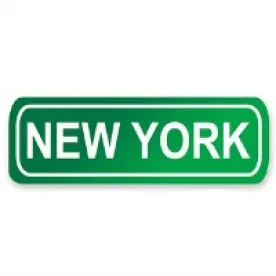On September 6, 2021, New York Governor Kathy Hochul announced that COVID-19 has been designated as a highly contagious communicable disease that presents a serious risk of harm to the public health under New York State’s HERO Act (“HERO Act” or the “Act”). At the time of the publication of this article, the Commissioner of Health’s designation is only effective until September 30, 2021. On September 30, the Commissioner will review the level of COVID-19 transmission in the state and make a further determination.
As a result, New York employers must now activate their adopted airborne infectious disease exposure prevention plans.
If they have not already done so, all New York employers must take the following steps:
-
Review and update the plan to ensure that it incorporates the most up-to-date information, guidance, and requirements from federal, state, and local governments related to COVID-19 and its variants;
-
Finalize and activate the plan;
-
Conduct a verbal review with all personnel of the New York State Department of Labor’s (“NYSDOL”) infectious disease standard, employer policies relating to the HERO Act, employee rights under the Act, and the employer’s exposure prevention plan;
-
Provide each employee with a copy of the plan;
-
Post a copy of the plain in a visible and prominent location in each worksite;
-
Make sure a copy of the plan is accessible to employees during all work shifts.
As we previously reported, the HERO Act and its amendments required employers to adopt one of the NYSDOL’s model plans or develop their own complaint infectious disease exposure prevention plan by August 5, 2021 and communicate that plan to employees 30 days thereafter. In the event that one of the model plans has been adopted, employers should be aware that those templates provide for a required training session with employees covering the following topics:
-
The infectious agent and the disease it can cause;
-
The signs and symptoms of the disease;
-
How the disease can be spread;
-
An explanation of the plan;
-
The activities and locations at the worksite that may involve exposure to the infectious agent;
-
The use and limitations of exposure controls;
-
A review of the standard, including employee rights provided under the Act.
Previously, the NYSDOL indicated that more guidance would be issued prior to November 1, 2021, when the remainder of the Act becomes effective, but at this time no such guidance has been published. As such, it is not clear how this training obligation is different than the mandatory verbal review.
It is also unclear how this designation impacts the obligation employers have to permit the formation of workplace safety committees and a committee’s role during this time. Employers are only required to permit the formation of workplace safety committees after the rest of the Act goes into effect on November 1, 2021. Therefore, the Commissioner’s designation is set to end before that requirement begins to apply.
Employer obligations under the HERO Act are developing rapidly. We will continue to monitor this legislation and will provide further updates regarding the HERO Act’s implementation as they become available.
The legal landscape continues to evolve quickly and there is a lack of clear-cut authority or bright line rules on implementation. This article is not intended to be an unequivocal, one-size-fits-all guidance, but instead represents our interpretation of where applicable law currently and generally stands. This article does not address the potential impacts of the numerous other local, state and federal orders that have been issued in response to the COVID-19 pandemic, including, without limitation, potential liability should an employee become ill, requirements regarding family leave, sick pay and other issues.
Myles Moran, a law clerk in the firm’s New York office, contribuetd to this article.



 />i
/>i
